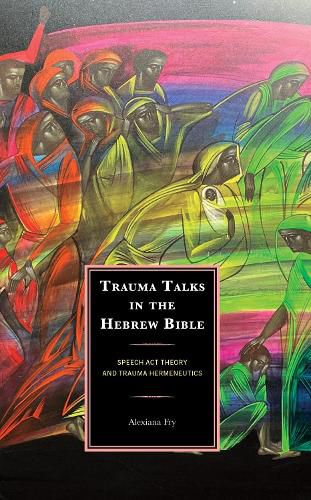Readings Newsletter
Become a Readings Member to make your shopping experience even easier.
Sign in or sign up for free!
You’re not far away from qualifying for FREE standard shipping within Australia
You’ve qualified for FREE standard shipping within Australia
The cart is loading…






If one of the many ways out of trauma's impact is through words, then why not use a theory closely attached to words and their impact alongside current trauma theories in understanding historical narratives? In Trauma Talks in the Hebrew Bible: Speech Act Theory and Trauma Hermeneutics, Alexiana Fry utilizes a diverse methodology of speech act theory and trauma hermeneutics to argue for a more fluid and holistic approach in re-interpreting narratives in the Hebrew Bible. Examining a more dissociative "objective" manner in reading, each chapter asks the question of "what about our own bodies?" Purposely provoking attunement with oneself to embrace "empathic unsettlement," the book refuses to give any semblance of finality. Through the many types of performative utterances and traumas both individual and collective-Joshua, Judges, Samuel, Ecclesiastes, and Hosea-Fry investigates the varied layers that constitute their many meanings. The reader is invited into an awareness and openness that is the human experience in biblical studies.
$9.00 standard shipping within Australia
FREE standard shipping within Australia for orders over $100.00
Express & International shipping calculated at checkout
If one of the many ways out of trauma's impact is through words, then why not use a theory closely attached to words and their impact alongside current trauma theories in understanding historical narratives? In Trauma Talks in the Hebrew Bible: Speech Act Theory and Trauma Hermeneutics, Alexiana Fry utilizes a diverse methodology of speech act theory and trauma hermeneutics to argue for a more fluid and holistic approach in re-interpreting narratives in the Hebrew Bible. Examining a more dissociative "objective" manner in reading, each chapter asks the question of "what about our own bodies?" Purposely provoking attunement with oneself to embrace "empathic unsettlement," the book refuses to give any semblance of finality. Through the many types of performative utterances and traumas both individual and collective-Joshua, Judges, Samuel, Ecclesiastes, and Hosea-Fry investigates the varied layers that constitute their many meanings. The reader is invited into an awareness and openness that is the human experience in biblical studies.